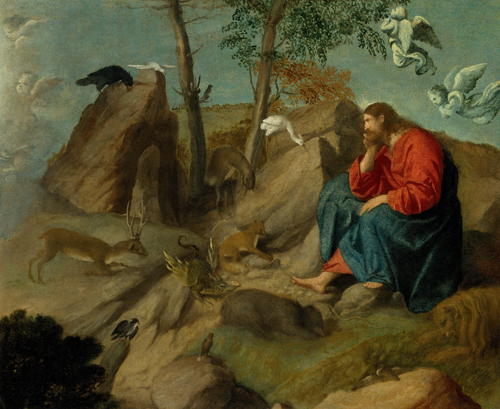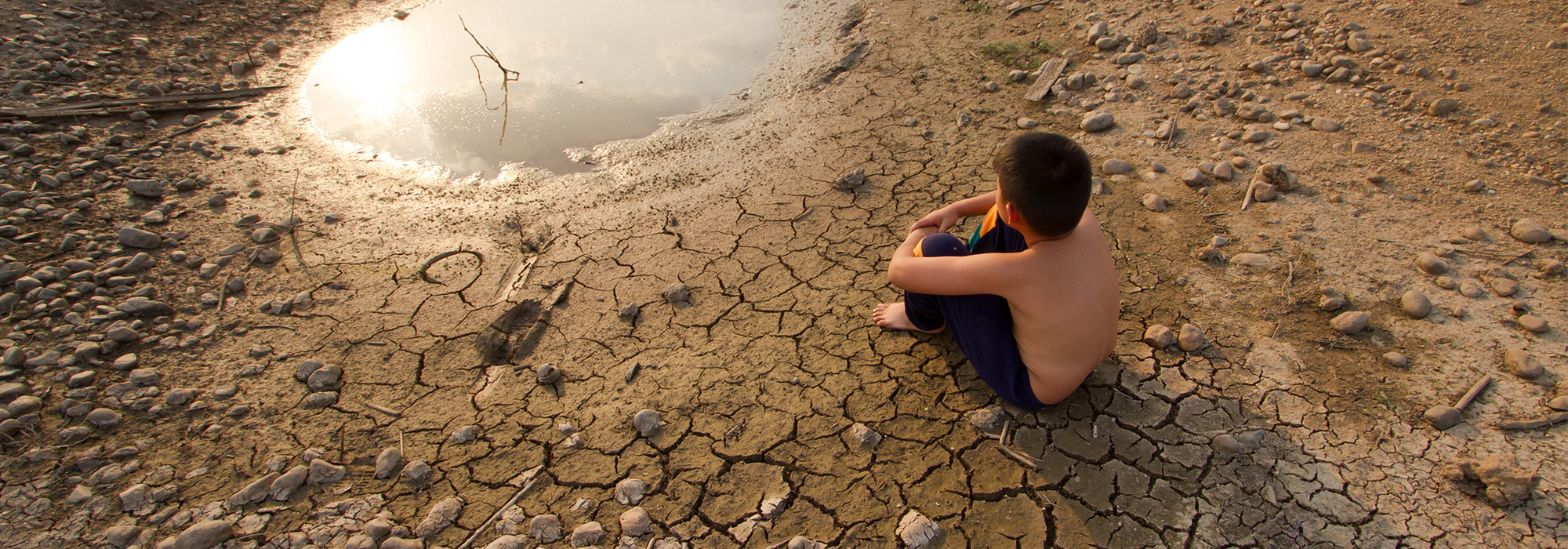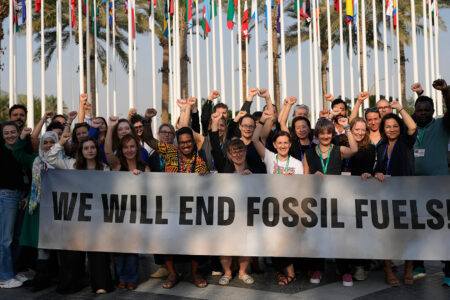
There is a widely held perception that people in conservative faith communities, particularly Christian ones, have little concern for the state of the environment. The stereotype holds that conservative Christians see environmental activism as a distraction from their commitment to the well-being of their souls and the lives of others. They fear a slippery slope from a belief that the environment is something God is concerned about to a world in which the environment becomes God. Add to that the concern among many Christians that public money spent on the environment would be better spent on people (the old salmon versus people debate), and you have a recipe for environmental myopia.
Or so the perception goes. As co-founder of A Rocha Canada, one of a handful of Christian environmental organizations that are active nationally, I have certainly witnessed evidence of this attitude. But I have also seen increasing signs of Christians shedding their anti-environment personas for a more robust and holistic approach to their faith, one that includes concern for the natural world.
For Christians across the generational spectrum, there is an increased understanding that if they are to truly love their neighbours, they are going to have to care for their neighbours’ ecosystems. They are coming to understand that polluting air and water, deforesting ecosystems, contributing to climate change and overfishing oceans to the point of near collapse means immense suffering for those who are most vulnerable to environmental degradation. Even major evangelical missions organizations are being asked to factor environmental concerns into their activities.
The fact that Christians are waking up to the reality of environmental problems is good news for the planet. Tackling issues like climate change and species extinction requires moral resolve—something Christians have historically been able to muster when the occasion called for it. While it is true that some heinous injustices have been perpetrated by people professing Christian faith, the Christian tribe has also been at the forefront of positive, justice-oriented change.
The most dramatic and obvious example is William Wilberforce and his band of very theologically conservative colleagues in the Clampton Sect, who were leaders in the movement to abolish slavery in England. Christians have also been at the forefront of the hospice and eldercare movements.
In all these cases, it was the suffering of the most vulnerable that motivated change.
Awareness that environmental issues are connected with questions of social justice is a recent development. Fifteen years ago, when my husband Markku and I were just starting the work of A Rocha in Canada, we often spoke in churches, encouraging congregants to see that the logical corollary to the Psalmist’s cry “The Earth is the Lord’s” is that we’d better look after it! After our talks we would stand at an info table in the foyer to give out environmental literature to anyone interested.
Christians increasingly understand that to truly love their neighbours they have to care for their neighbours’ ecosystems.
One of the first congregations we visited was a Pentecostal church down the road from our house in North Vancouver. After the service I stood at our leaflet-strewn table, smiling benignly at all who passed. And pass they did, with not one stopping to chat, ask questions or grab a newsletter. Our presence and message of the Christian duty to care for creation were not ringing bells for anyone.
Finally a woman tentatively came toward our table. Ah, I thought, a comrade. She stood before me, but hesitated before speaking. Was it that hard for her to admit her environmental sympathies, I wondered. At last she said, “I hope you don’t mind me asking, but where did you get your shoes?”
No one else approached.
That same year we applied to host a booth at a large Christian conference for organizations doing “mission” work in Canada and abroad. The spectrum of ministries was broad and included those doing humanitarian work, such as digging wells and establishing schools and medical clinics, as well as those engaged in more traditionally evangelistic activities, such as starting churches.
We sent in our application and looked forward to gathering some like-minded God and nature lovers for our cause. It came as a great surprise, therefore, when we received a phone call saying we had been turned down because our work was not deemed “Christian ministry.” Evidently you could dig a poor person a well, but you couldn’t clean up his water upstream.
These days we still speak in churches and have set up many a booth at many a Christian conference. But the shift in attitudes toward environmental concerns in those intervening years has been remarkable.
Somewhere along the way it became okay to be Green and a Christian. The shift happened earlier in mainline churches of the United, Anglican and Lutheran faiths, but now it’s normal for even conservative evangelical congregations to have Green teams. These teams are starting community gardens, doing energy audits on their church buildings and trading in their Styrofoam cups for ceramic mugs during coffee hour.
So what drove this change? Why have Christians, even those of the most conservative stripes, become open to earth care as a legitimate form of Christian service?
The answers vary and, in our experience, often fall along generational lines. A younger generation that grew up with environmental education as part of their school curriculum has become increasingly dissatisfied with any religion concerned only with souls destined for heaven. They want to see “the kingdom come to earth as it in heaven.”

This generation has no problem accepting reports from the Intergovernmental Panel on Climate Change that show the earth warming, or a Living Planet Report from the World Wildlife Federation telling them that the number of mammals, birds, reptiles, amphibians and fish is about half what it was 40 years ago. And they are motivated to do something tangible to arrest that degradation as a way of living out their faith in the here and now.
The shift in the older generation has been more gradual. It has emerged as they have been introduced to Biblical teaching that challenges previously held views supporting a more dominionist approach by humans to the natural world.
At first, many conservative Christians are surprised to learn that the theme of earth care runs throughout their sacred text. From the earliest passages in Genesis, where the Hebraic and Christian creation story tells of humanity’s charge to “tend and keep” the earth, to Psalms and its claim that “the earth is the Lord’s,” to the New Testament and the Apostle Paul’s assertion in the book of Colossians that Christ came to redeem “all things,” the theme of God’s love for all creation is present.
Some of the most dramatic shifts in understanding have come when people begin to frame environmental concerns in a moral light, seeing that it is human sin that leads to environmental degradation. The words of the prophet Hosea pack a rather potent punch in this regard:
Hear the word of the Lord, you Israelites,
because the Lord has a charge to bring
against you who live in the land:
There is no faithfulness, no love,
no acknowledgement of God in the land.
There is only cursing, lying and murder,
stealing and adultery;
they break all bounds,
and bloodshed follows bloodshed.
Because of this the land mourns,
and all who live in it waste away;
the beasts of the field and the birds of the air
and the fish of the sea are dying. (Hosea 4:1-3)
It is easy for conservative Christians to agree on the moral bankruptcy that leads to cursing, lying, murder, stealing and adultery. But to say that these moral missteps in turn lead to a land that mourns, where beasts, birds and fish die, is often a new thought.
If this line of argument—that human sin leads to environmental degradation—were to be presented in the New York Times, it might be easily dismissed by religious conservatives. But because conservative Christians take the Bible as authoritative for belief and action, Hosea’s indictment suddenly has the clarion ring of truth to it. There’s little wiggle room to interpret the prophet’s words: the earth’s suffering is intrinsically linked to humanity’s faithlessness, lack of love and lack of acknowledgement of God. The trickle-down effect of human brokenness is a land that mourns, where all who live, human and nonhuman alike, waste away.
Perhaps the clearest signal of a major shift in this area has been the recent statements coming out of the largest and most influential global evangelical organization, the Lausanne Movement, an umbrella missions organization that influences strategy and thinking in almost every evangelical denomination.
In 2012, the organization held a global consultation on creation care and the Gospel. The following is a portion of the statement released after their proceedings:
“We are faced with a crisis that is pressing, urgent, and that must be resolved in our generation. Many of the world’s poorest people, ecosystems, and species of flora and fauna are being devastated by violence against the environment in multiple ways, of which global climate change, deforestation, biodiversity loss, water stress, and pollution are but a part. We can no longer afford complacency and endless debate. Love for God, our neighbors and the wider creation, as well as our passion for justice, compel us to “urgent and prophetic ecological responsibility.”
Thanks to the parable of the Good Samaritan, Christians can easily identify faraway planet-mates as their neighbours. They are also making the connection between their overconsumption lifestyles and the degradation that is causing suffering, whether it is the prolonged drought in sub-Saharan Africa or the dramatic flooding in Bangladesh.
In 1967, medieval historian Lynn White published “The Historical Roots of Our Ecological Crisis,” an article that has been much anthologized and in which he laid the blame of much (if not all) of the ecological crisis squarely on the shoulders of Christian teachings and practice. White argued that the roots of the ethic that treated the earth as a resource for human consumption rested with a view of nature contained in medieval Christianity. His critique warrants consideration, for certainly conservative Christians have been late in showing up for the earth care parade.
But it is his conclusion—which many who are quick to blame Christianity for ignoring the current environmental crisis usually miss—that matters here. White arrived at the belief that just as religion might be to blame for the environmental crisis, it also contains the moral seeds to help solve the problem.
It is an optimistic note, one so badly needed at a moment when the challenge of habitat loss, species extinction and climate change often appears too difficult, overwhelming our collective imagination and capacity to act. My experience with A Rocha shows a way down that more hopeful path as well. It has revealed that once Christians understand the fuller Biblical narrative of God’s concern for the earth and for the suffering caused to all living things by its ill treatment, they uncover a moral resolve, a willingness to sacrifice for the health and healing of all that God loves.
Photo: Shutterstock






